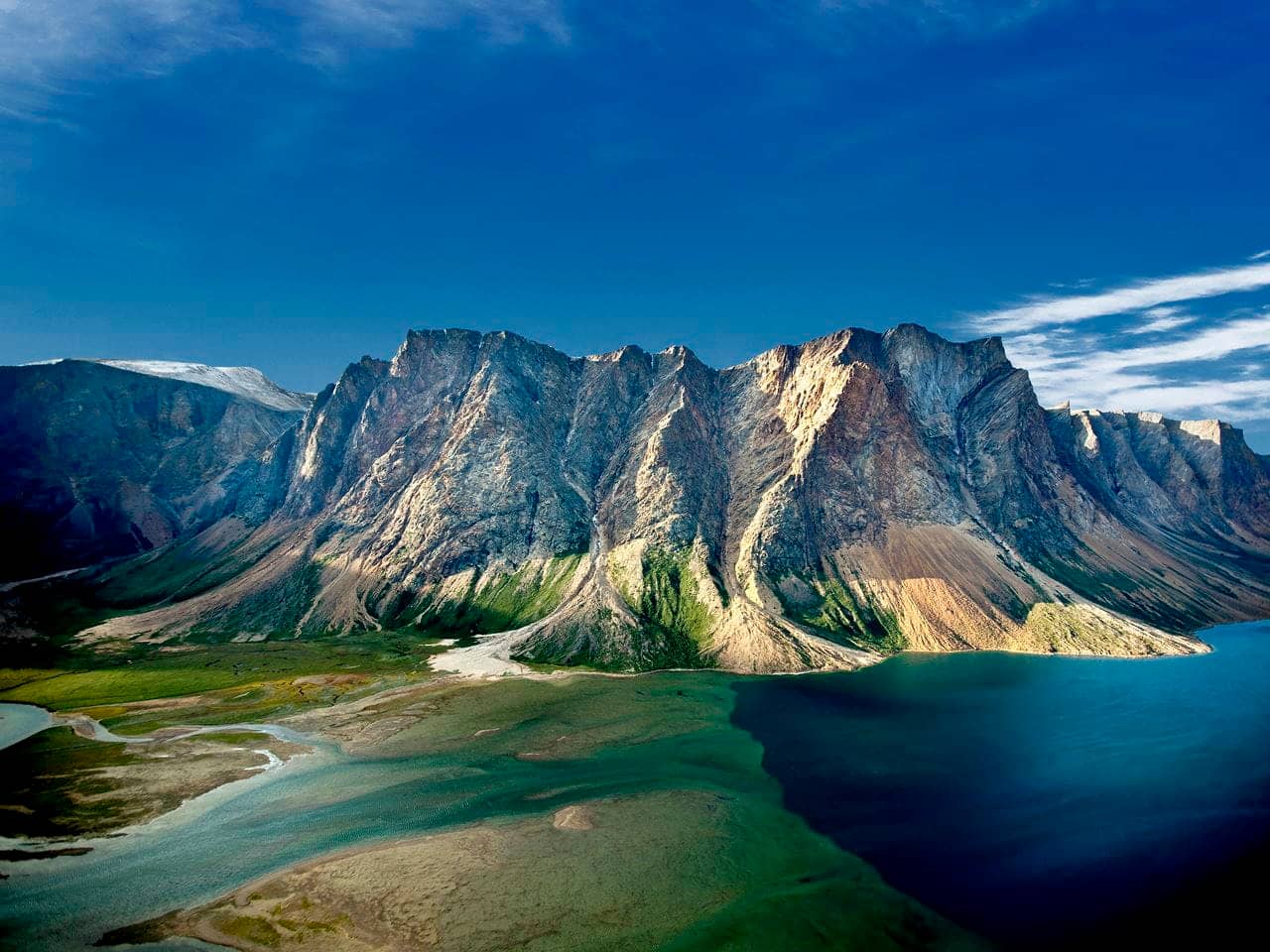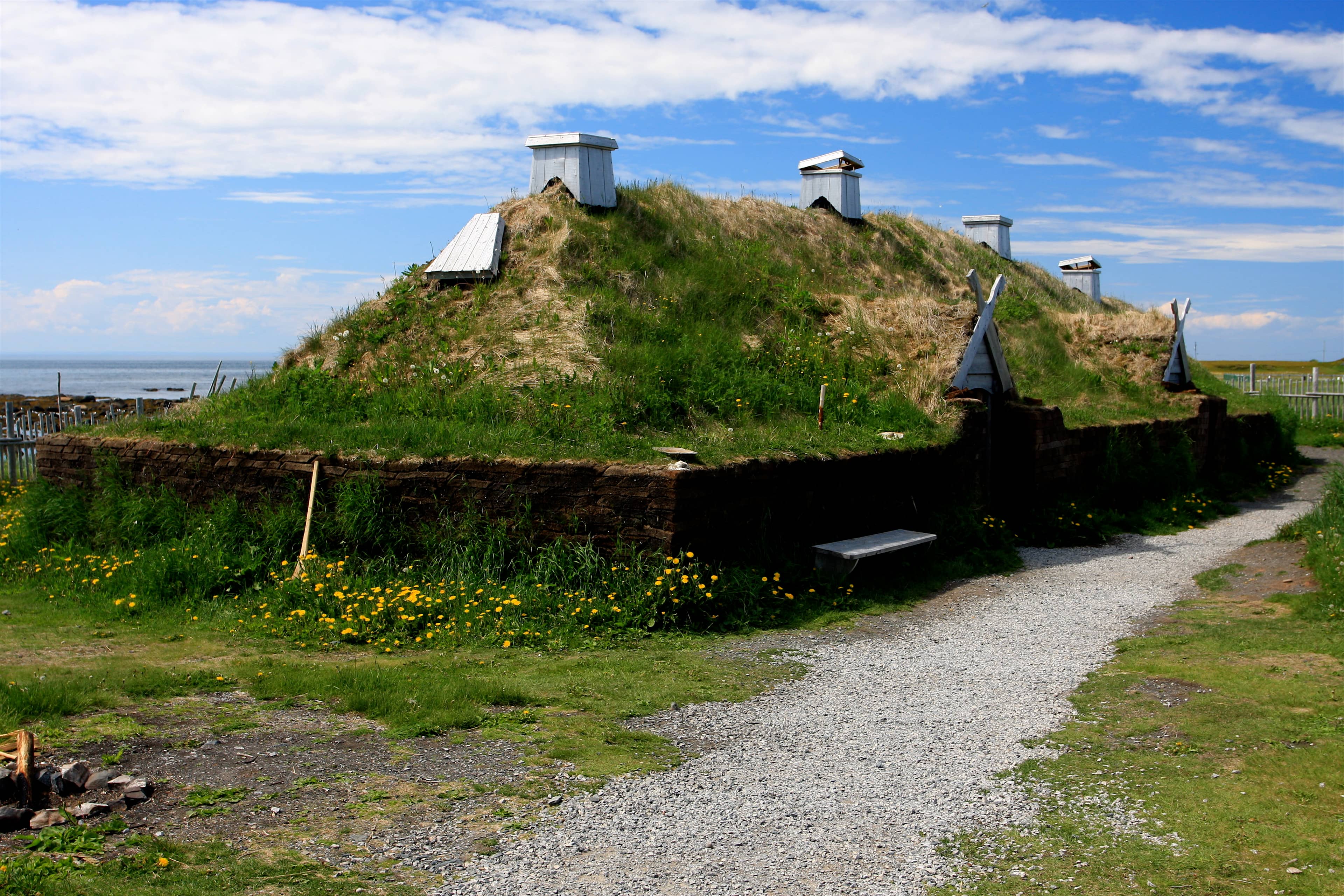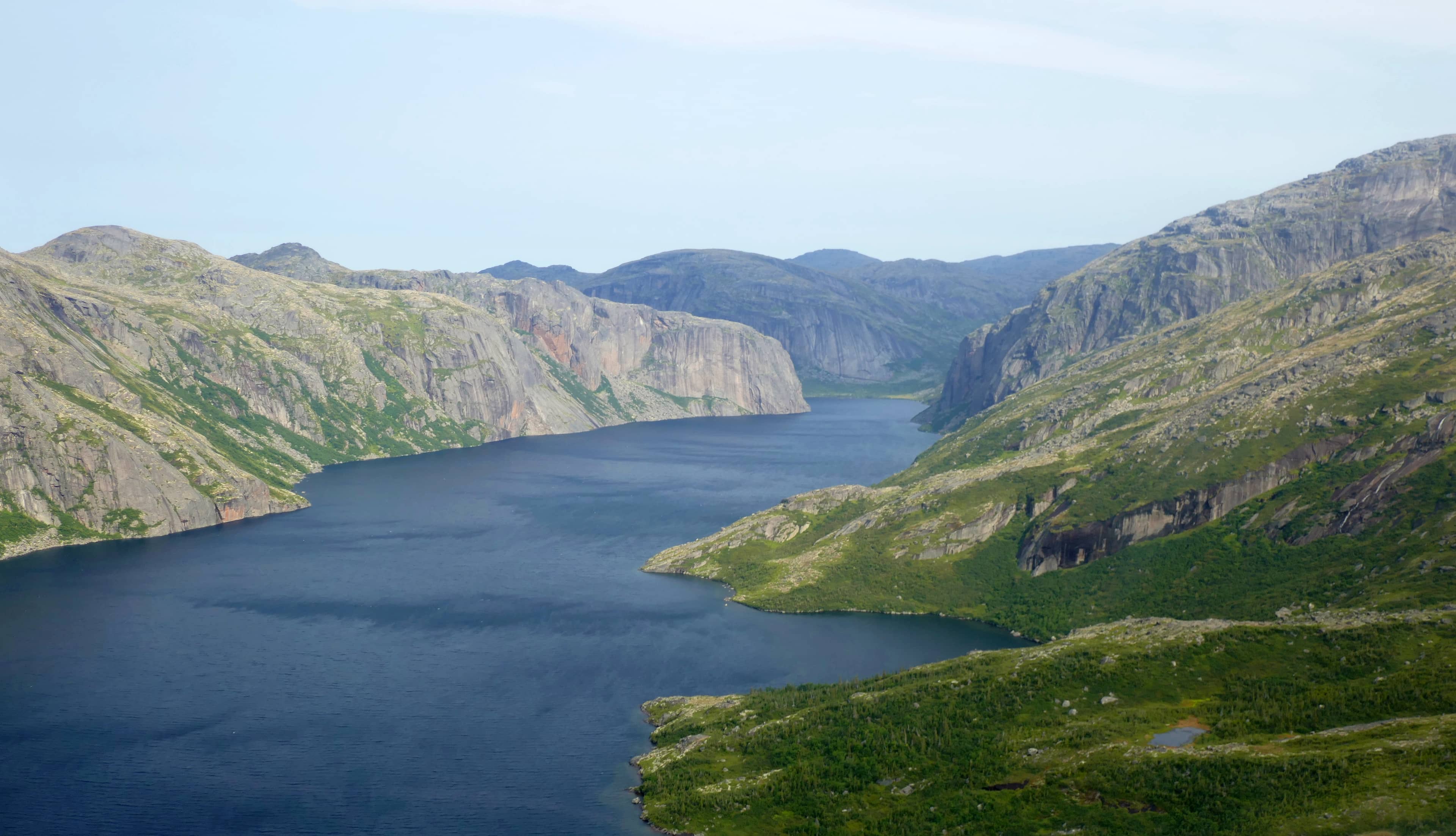Labrador Canada
Labrador, Canada: An immense, wild frontier offering dramatic landscapes, rich Inuit heritage, and unparalleled adventure.

Highlights
Must-see attractions

Social
From TikTok & Reddit
Best Time
Longest days, best weather
Labrador Canada
Best Time
Longest days, best weather

Highlights
Must-see attractions
Labrador, Canada: An immense, wild frontier offering dramatic landscapes, rich Inuit heritage, and unparalleled adventure.
"Labrador is a place of raw, untamed beauty that truly gets under your skin."
🚗 Plan Your Road Trips
Labrador is vast! Distances are long. Rent a reliable vehicle and book ferries in advance. :car:
🧥 Pack for All Seasons
Weather changes rapidly. Layers are key! Waterproof gear is a must. :cloud_rain:
Highlights
Discover the most iconic attractions and experiences

Torngat Mountains National Park
Northern Labrador
Experience dramatic fjords, icebergs, and Inuit culture in Canada's northernmost national park. A true wilderness adventure.

L'Anse aux Meadows National Historic Site
Newfoundland's Northern Peninsula (accessible from Labrador)
Step back in time at the only authenticated Viking settlement in North America. UNESCO World Heritage site.
Red Bay National Historic Site
Southeastern Labrador
Explore the history of Basque whaling in this significant UNESCO World Heritage site, offering stunning coastal views.

Mealy Mountains National Park Reserve
Central Labrador
Discover diverse ecosystems, from boreal forests to tundra, with opportunities for hiking and wildlife viewing.
Plans like a pro.
Thinks like you
Planning Your Visit
Embrace the Vastness
Weather-Ready Adventures
Best Times
Insider Tips
from TikTok, Instagram & Reddit
🚗 Plan Your Road Trips
Labrador is vast! Distances are long. Rent a reliable vehicle and book ferries in advance. :car:
🧥 Pack for All Seasons
Weather changes rapidly. Layers are key! Waterproof gear is a must. :cloud_rain:
🦟 Bug Spray is Essential
Mosquitoes and black flies can be intense in summer. Bring strong repellent. :bug:
📱 Download Offline Maps
Cell service can be spotty. Download maps for navigation. :iphone:
Tips
from all over the internet
🚗 Plan Your Road Trips
Labrador is vast! Distances are long. Rent a reliable vehicle and book ferries in advance. :car:
🧥 Pack for All Seasons
Weather changes rapidly. Layers are key! Waterproof gear is a must. :cloud_rain:
🦟 Bug Spray is Essential
Mosquitoes and black flies can be intense in summer. Bring strong repellent. :bug:
📱 Download Offline Maps
Cell service can be spotty. Download maps for navigation. :iphone:
🐻 Wildlife Safety
Be aware of your surroundings, especially for bears. Store food properly. :bear:
What Travellers Say
Reviews Summary
Visitors rave about Labrador's breathtaking, untouched wilderness and the profound sense of remoteness. The vast landscapes, unique Inuit culture, and opportunities for adventure are consistently highlighted as major draws. However, the challenging travel conditions, limited services, and intense insect presence can be significant drawbacks for some.
What People Like
What People Dislike
Frequently Asked Questions
🚇 🗺️ Getting There & Around
Accessing Labrador typically involves flying into major hubs like Happy Valley-Goose Bay or Wabush. Alternatively, you can drive to Newfoundland and take a ferry to Labrador. The Trans-Labrador Highway connects many key areas, but be prepared for gravel sections and long distances. Consider booking flights and ferry crossings well in advance, especially for the Labrador ferry from Newfoundland.
Sections of the Trans-Labrador Highway have been paved in recent years, but significant portions, particularly in more remote areas, remain unpaved gravel roads. Drivers should be prepared for varying road conditions, potential dust, and slower travel times. A 4WD vehicle is often recommended for exploring off the main routes.
Renting a car is highly recommended for exploring Labrador due to its vast size and dispersed attractions. Public transportation is very limited. For remote areas like Torngat Mountains National Park, specialized tours or charter flights may be necessary. Always ensure your rental agreement permits travel on gravel roads if you plan to explore extensively.
Yes, there are ferry services connecting Newfoundland to Labrador. The main route is from St. Barbe, Newfoundland, to Blanc-Sablon, Quebec, which is near the Labrador border. This ferry is essential for those driving from Newfoundland. Booking your ferry passage in advance is strongly advised, especially during the busy summer months.
Driving the entire length of the Trans-Labrador Highway can take several days, depending on your starting point, stops, and road conditions. It's a journey of over 1,000 kilometers, and many travelers opt to break it up into multiple days to fully appreciate the scenery and stop at various points of interest.
🎫 🎫 Tickets & Entry
For national parks like Torngat Mountains and Mealy Mountains, it's advisable to check the Parks Canada website for the most up-to-date information on entry fees and booking requirements. For Torngat Mountains, due to its remote nature, booking guided tours or expeditions is often necessary and includes park access.
Historic sites such as Red Bay National Historic Site typically have admission fees. It's best to check the Parks Canada website or contact the site directly for current pricing and operating hours. Purchasing a Parks Canada Discovery Pass can be cost-effective if you plan to visit multiple national parks and historic sites.
Operating hours for attractions, especially in smaller communities and national parks, can be seasonal and vary. Many outdoor sites are accessible year-round, but visitor centers and interpretive programs usually operate during the summer months. Always verify hours of operation before your visit.
For most attractions and national parks, you can purchase tickets or passes upon arrival. However, for popular tours or remote locations like Torngat Mountains, advance booking is often mandatory due to limited capacity and logistical planning. It's always safer to book ahead for key experiences.
Many of Labrador's most stunning attractions are natural wonders and are free to access, such as scenic viewpoints, hiking trails outside of national parks, and coastal areas. Exploring charming small towns and enjoying the local scenery also comes at no cost.
🎫 🧭 Onsite Experience
Labrador is teeming with wildlife! Expect to see caribou herds, black bears, moose, and a variety of bird species. Along the coast, you might spot whales, seals, and seabirds. Torngat Mountains is also home to polar bears, so bear safety is paramount. Always maintain a safe distance and never feed wildlife.
Hiking opportunities abound, from coastal paths to mountain treks. Popular areas include trails within Mealy Mountains National Park Reserve and around Gros Morne National Park (accessible from Newfoundland). Many communities also have local trails offering stunning views. Always be prepared with appropriate gear and let someone know your hiking plans.
Yes, Labrador offers fantastic camping experiences, from designated campgrounds to backcountry wilderness. Provincial parks and national parks have facilities, while remote areas offer dispersed camping. Be prepared for variable weather and insects. Always check regulations for campfires and waste disposal.
Activities range from wildlife viewing, hiking, and kayaking to exploring Inuit culture and history. Fishing, boating, and scenic drives are also popular. In winter, snowmobiling and ice fishing become major draws. The remote wilderness offers unparalleled opportunities for adventure.
Pack layers of clothing, including waterproof and windproof outer shells. Sturdy hiking boots, insect repellent, sunscreen, a hat, and gloves are essential. Binoculars for wildlife viewing and a good camera are highly recommended. Don't forget a first-aid kit and any personal medications.
🍽️ 🍽️ Food & Dining
Labrador's cuisine is heavily influenced by its natural resources. Expect fresh seafood like cod, salmon, and lobster, as well as game meats such as caribou and moose. Traditional dishes often feature root vegetables and berries. Don't miss trying 'Screech,' a local rum, if you're feeling adventurous!
Dining options are more concentrated in larger towns like Happy Valley-Goose Bay and Wabush. You'll find a mix of casual diners, pubs, and some restaurants offering local specialties. In smaller communities, options may be limited to local cafes or general stores, so it's wise to inquire locally.
While traditional Labrador cuisine leans heavily on meat and fish, many restaurants are increasingly offering vegetarian and vegan options. It's always a good idea to check menus in advance or inform your server of dietary needs. Fresh, local produce is often available, especially during the summer months.
Yes, grocery stores are available in most larger towns and some smaller communities. However, selection and availability can vary, especially for specialty items. If you plan on self-catering or camping, it's advisable to stock up on non-perishables before heading into more remote areas.
You absolutely must try fresh cod, pan-fried or in fish and chips. Caribou stew or roast is a unique experience. For dessert, look for partridgeberry pie or jam. Local seafood chowders are also a delicious and hearty option, perfect after a day of exploring.
📸 📸 Photography
Labrador offers incredible photographic opportunities. Dramatic landscapes like Torngat Mountains, coastal vistas at Red Bay, and the rugged beauty of the Mealy Mountains are prime locations. Don't forget charming fishing villages, unique flora, and the potential for stunning aurora borealis displays in the right season.
A versatile setup is best. A wide-angle lens is great for landscapes, while a telephoto lens is useful for wildlife. A sturdy tripod is essential for low-light conditions, especially if you're hoping to capture the Northern Lights. Consider weather-sealed gear due to the unpredictable climate.
Dawn and dusk are generally the best times for wildlife photography, as animals are most active. Spring and early summer are good for observing migratory birds and newborn animals. Always maintain a safe distance and use a telephoto lens to avoid disturbing the wildlife.
Yes, Labrador is an excellent location for photographing the Aurora Borealis, especially during the fall and winter months when the nights are long and dark. Clear skies are essential. Look for locations away from light pollution for the best views and consider long exposure settings on your camera.
For remote and specialized locations like Torngat Mountains, photography tours are often available and highly recommended. These tours combine expert guiding with opportunities to capture stunning images. Inquire with local tour operators for options.
For Different Travelers
Tailored advice for your travel style
👨👩👧 Families with Kids
Key family tips:
* Pack Smart: Bring plenty of layers, rain gear, and insect repellent. Kids can get cold quickly.
* Snacks are Crucial: Pack more snacks than you think you'll need, especially for long drives.
* Embrace the Outdoors: Focus on activities like short hikes, beachcombing, and wildlife spotting. The natural beauty is the main attraction.
* Manage Expectations: Travel times are long, and services can be limited. Plan for downtime and flexibility.
🚗 Road Trip Enthusiasts
Key stops along the highway offer glimpses into Labrador's unique character. Happy Valley-Goose Bay serves as a central hub, while smaller communities provide authentic local experiences. Don't miss the chance to detour to significant sites like Red Bay National Historic Site for a dose of history. The journey is as much about the destination as it is about the incredible scenery and the feeling of remoteness you'll experience.
🏞️ Nature & Wilderness Lovers
Coastal exploration is also a must. The rugged coastline offers stunning vistas, opportunities for whale watching, and the chance to explore unique geological formations. Be prepared for unpredictable weather by packing layers and waterproof gear. Insect repellent is essential during the summer months. Embrace the solitude and the immense beauty of this remote Canadian landscape.
Deep Dives
In-depth insights and expert knowledge
Exploring the Trans-Labrador Highway
Travelers often describe the experience as challenging but incredibly rewarding. The sheer scale of the landscape, the vast boreal forests, and the rugged coastlines are awe-inspiring. Key stops include Happy Valley-Goose Bay, Labrador's largest community, and smaller towns offering a glimpse into local life. The highway also provides access to trailheads for hiking and points of interest like the Red Bay National Historic Site.
Key considerations for driving the Trans-Labrador Highway:
* Vehicle: Ensure your vehicle is in excellent condition. Consider a spare tire and basic repair tools.
* Fuel: Fill up whenever you have the opportunity, as gas stations can be far apart.
* Communication: Carry a satellite phone or personal locator beacon for emergencies in remote areas.
* Patience: Embrace the journey. The beauty of Labrador unfolds slowly, and rushing will detract from the experience.
Inuit Culture and Heritage
Beyond the national park, communities like Nain, Labrador's northernmost town, offer opportunities to engage with Inuit culture. Visit local craft shops to admire and purchase intricate carvings and artwork made from soapstone and caribou antler. Museums and cultural centers often provide exhibits detailing Inuit history, language, and traditions. Respectful engagement is key; always ask permission before taking photos of people and be open to learning from their perspectives.
Key aspects of Inuit culture to explore:
* Art and Craftsmanship: Discover unique carvings, beadwork, and traditional clothing.
* Oral Traditions: Listen to stories and legends passed down through generations.
* Connection to Land: Understand the deep spiritual and practical relationship Inuit have with their environment.
* Language: Learn a few basic Inuktitut phrases to show respect and foster connection.
Wildlife Encounters in Labrador
Coastal areas, particularly during the summer months, are prime spots for whale watching. Humpbacks, minke whales, and even fin whales can be spotted. Seals are also common. For the truly adventurous, Torngat Mountains National Park is one of the few places where you might encounter polar bears. It is absolutely critical to follow all safety guidelines and regulations when in polar bear country, and it is strongly recommended to visit with experienced guides.
Tips for wildlife viewing:
* Best Times: Dawn and dusk are typically when animals are most active.
* Respect Distance: Always maintain a safe and respectful distance. Never feed wildlife.
* Use Binoculars/Telephoto Lens: Enhance your viewing experience without disturbing animals.
* Be Quiet: Minimize noise to avoid scaring animals away.




Social
from TikTok, Instagram & Reddit